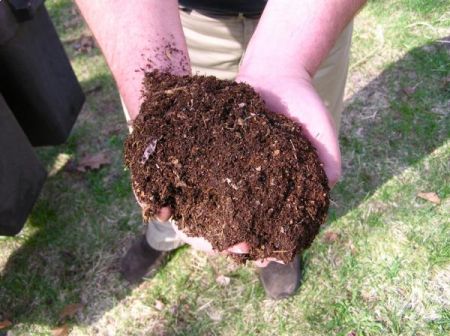Excessive doses of organic substances in agricultural fields can be dangerous for plants, plants and the microorganisms that live in them

Excessive doses of organic substances in agricultural fields can be dangerous for plants, plants and microorganisms living in them. This is the finding of a study conducted at the University of Barcelona and which showed that the use of appropriate levels of fertilizers could prevent the result of the poisoning of life in the soil.
Even though controlled quantities of organic materials, sewage-swamps and waste in the agricultural sector are a good choice of types of fertilizers for the soil, the materials may cause a harmful effect on the fauna in it if their quantities are excessive. In order to prevent these toxic effects on the soil, a team of researchers from the CREAF research center at the University of Barcelona (UAB) conducted a test to determine the maximum safe doses of organic fertilizers.
"This test is based on biological experiments conducted in the laboratory using representative organisms that exist in agricultural soils and that need to be protected: plants, worms, and other microorganisms," says lead author of the study Xavier Domene.
The study, published in the scientific journal Environmental Pollution, shows that the low level of stability of the materials used as fertilizers is one of the main reasons for the harmful effects on plants and crops. "The rapid decomposition of fertilizers in the soil produces chemical substances such as ammonia, which is the main source of the toxic effects observed in the soil," says the researcher. The research group determined a "safe dose" for each of the seven substances tested.
The researchers believe that using these substances in agricultural soils in doses lower than the threshold level established for them will be able to protect ninety-five percent of the varieties existing in this type of soil. The study adds and explains that by comparing the safe dose to the dose that has been used so far, it is possible to assess the potential impact on life in the soil.
The European Union currently produces a wide range of organic materials using a variety of treatment technologies that minimize their volume and enable their easier handling. According to the researchers, "Environmental toxicity standards should also be included in the legislation to prevent the impact of these harmful organic substances on the environment."

6 תגובות
The biological diversity in the soil and the effect of agriculture on it are unknown. I was lucky and today I work in a group that looks at exactly this. The effect of plants, grazing and land cultivation on biological diversity of soil microorganisms.
The term "soil poisoning" is somewhat incomprehensible and misleading. One man's poison is another man's food. If oversalination makes the natural environment too difficult for its common inhabitants, then these will disappear and their place will be taken by new inhabitants. Land, like sought-after streets in Tel Aviv, is a place that does not allow an unpopulated location. But of course, there is also an agricultural need and it is not enough to talk about just biological diversity in agricultural land without referring to the produce.
This creates an economic incentive not to destroy the soil both by excess fertilizer which is quite expensive and by destroying the natural environment of the crops which in turn will destroy the fertility of the soil
The cool:
No. They just want not to use more than necessary. It is also written that in the right amounts the fertilizer is beneficial.
So what do they want? that they use phosphorous chemicals of all kinds?